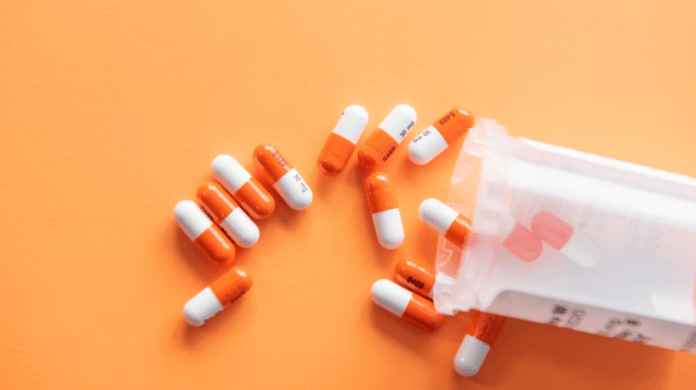When you go and visit your health care practitioner, the majority of the time you are likely to leave the clinic clutching a prescription for a particular medication. So the more times you are taking a specific medicine it might be that your body eventually will build up a resistance to a particular ailment. So as time passes by are you better off not taking prescription medicines at all? Well depending on the type of illness or ailment you have and the type of medicine consumed, it is possible that perhaps you are in essence doing your body more harm than good.
So Why Take Medication In The First Instance?
The simple reason is that there are medical conditions or instances whereby patients require prescribed medication to alleviate symptoms and even possibly prevent them from death. The ultimate aim of any medication is to improve the initial symptoms and make the user feel better. Conditions such as Epilepsy, Schizophrenia, Crohn’s Disease, Depression and various forms of cancer are examples of illnesses whereby the user is reliant on medication to improve their symptoms and make them feel better on a daily basis. So it is difficult not to be accustomed to prescribed medication when you are in the scenario of having to deal with a long term illness that in itself causes unpleasant side effects and can shorten your lifespan if you do not take prescribed medication.
What Are The Damaging Effects of Not Taking Prescribed Medication When You Suffer From an Illness
When you are reliant on medication to make you feel better and ultimately improve the unpleasant side effects you are currently experiencing from the illness itself, it is important to establish a routine with regards to how you take your daily medication. This can be particularly difficult to withdraw from if you are utilizing compounded medications to treat your everyday pain and discomfort.
According to The Centers for Disease Control and Prevention (CDC), they suggest that at least 30-50% of users that suffer from chronic conditions that do not follow their intended routine of taking their prescribed medication, are at risk of serious harm and even death.
This is particularly alarming for those that are reliant on statins to control their cholesterol level. Users that end up stopping their prescribed course of treatment are 25% more likely to be at risk of dying if this occurs within the first year of treatment. This is an alarming figure and is an indication of how reliant some people really do need to be when it relates to matters of health. So in these circumstances, the sudden withdrawal of prescribed medication is not certainly not advisory when it can do more harm than good. For example, when you are treating Crohns disease, it is important to stick to your prescribed medication routine as not following it could lead to severe flare-ups and complications that can damage your digestive system even further. In such cases, the benefits of taking prescribed medication far outweigh any potential risks that may arise from long-term use. Therefore, always listen to your healthcare practitioner and follow their advice when treating chronic illnesses.
Is There Too Much Reliance on Medication In Some Circumstances and Is This In Reality Causing More Harm Than Good?
There are occasions though where perhaps people who do not suffer from a lifelong illness are becoming more reliant on prescribed medication to treat an ailment which could actually be better treatable with a more natural alternative. A classic example would be treating a typical cold or flu with antibiotics when in reality it will not be beneficial.
Antibiotics are a prime example of a type of medication that when taken frequently can reduce its efficacy over time. According to The World Health Organization (WHO) they believe that only 50% of antibiotics that are taken globally are used correctly. This suggests that the other 50% are suffering from illnesses that have built up a tolerance that would otherwise be treatable by antibiotics. This alarming trend suggests that by 2050 the number of preventable deaths worldwide could increase to 10 million annually if the level of antibiotics that are currently prescribed continues on this upward trend. In this instance the use of prescribed medication is definitely causing more harm than good.
Why You Need to Take Your Medications as Prescribed or Instructed | FDA
Ibid
____________________
Since 2014, the Centers for Disease Control and Prevention (CDC) have introduced a program aimed at cutting back on the number of prescribed antibiotics. Entitled The Core Elements of The Antibiotic Stewardship Programs, this intends to provide up to date clinical information that will enable hospitals to reevaluate how they are prescribing antibiotics to patients and adapt their current practices.
There needs to be a reevaluation in hospital settings to determine how many antibiotics are currently being prescribed and in what sort of circumstances they are being given to patients when it might not be necessary. You can learn what PCT is from Thermo Fisher, which provides a better insight into how hospitals can adopt new ways of ensuring that patients that require treatment are not automatically given a treatment of antibiotics.
Organizations such as Thermo Fisher are attempting to drive forward with their initiative to encourage hospital settings to reconsider how they prescribe antibiotics and in what circumstances they should be given. It’s important when new clinical research is brought forward that health facilities can look at their current practices and implement new and positive changes. This is particularly important in this instance whereby the frequent use of prescribed medication is in essence causing people to become more tolerant of these drugs and build up a resistance to them, which will in turn cause them to be ineffective and not provide the primary function, to help the user feel better.
Antibiotic Stewardship | Preventing Antibiotic Resistance – Thermofisher

The Alternative? A Natural Remedy
When you head to the pharmacy now you are also inundated with an array of natural remedies that was not visible ten, twenty years ago. So as a consumer you also have the option of exploring more natural based remedies, than automatically reaching for the prescribed medications. There are a variety of well established natural remedies that are popular which many may turn to as a viable option instead of prescribed medications.
Although medicines have of course been through vigorous testing before being allowed on to the shop floor, they can still be quite strong and present various side effects if it is a group of medicines that you have not taken before. You never know how your body is going to react in these types of circumstances. So when you are presented with a choice of taking a strong medication that can cause unpleasant side effects or perhaps change a few habits in your daily lifestyle using natural remedies and diet, then it would certainly be more appealing to go for the second option.
The appeal to opt for more natural remedies is certainly apparent given the choice of supplements in store or plethora of information online about diet and lifestyle. Or when there are everyday foods such as herbs that can be consumed on a daily basis and are easy to incorporate into your routine then it is no wonder that many might turn to more natural remedies as a solution to their ailment. It can seem a lot easier to make a few dietary changes then become reliant on a prescribed medication for the rest of your life. Given the choice between the two it is no wonder that many might consider the more natural alternative instead.
Overall it is dependent on personal circumstances and health whether the correct option in your case is to follow through with a course of prescribed medication or attempt to try a more natural remedy as a solution and make some changes in your diet and lifestyle.
It is certainly useful to read up about the long term side effects of taking medication for long periods of time and being well informed of what you are taking and the risks involved. But in various circumstances this is unavoidable when you are dealing with a life long illness. So it is quite a debated subject that is likely to continue until even more research comes to fruition on the long term side effects of taking prescribed medication.


